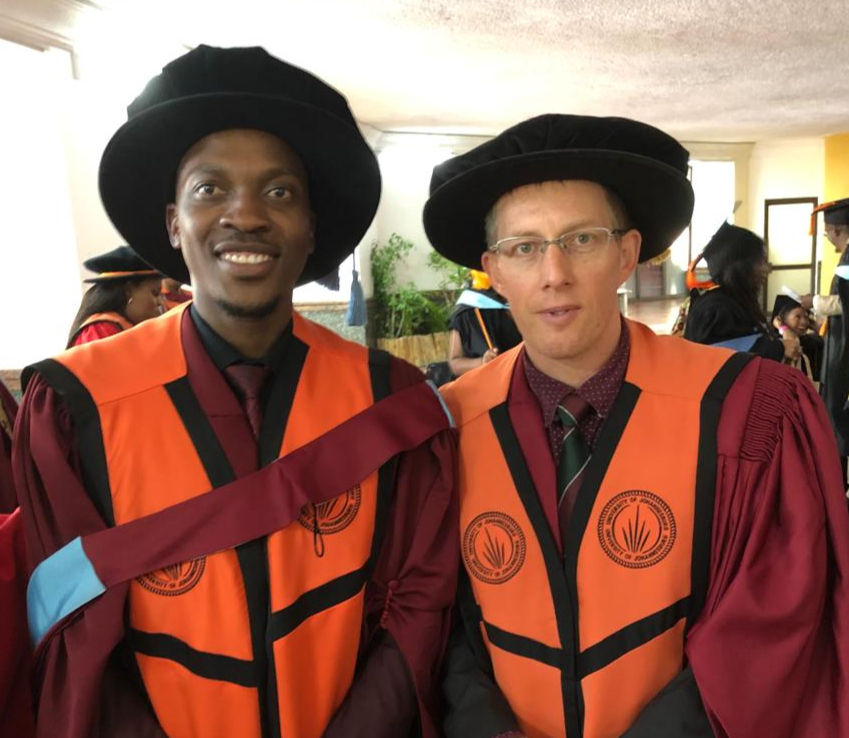Escape from Coffee Bay
- Andrew Hartnack
- Mar 12, 2024
- 4 min read
Updated: Mar 17, 2024
I had the privilege to travel to Zithulele, on the Wild Coast of the Eastern Cape, in February 2023, when I visited an NGO called Axium Education, which works in schools in the district. This is a very isolated part of rural Eastern Cape. The once-smooth tarred road from the main N2 highway near Mthatha to Coffee Bay is now a potholed nightmare. It took me more than two hours to travel 80 km, carefully winding past and bouncing through potholes and trenches in the tiny hire car I had picked up in East London.
To compound matters, the weather was very wet and slippery. I made my way to Zithulele Hospital, where Axium is based, and conducted various interviews with its staff, before visiting a school in the afternoon. The plan was to spend the Friday night in Coffee Bay, 20 km further along the cratered road, before driving back to East London early Saturday to catch a mid-afternoon flight.
I arrived in Coffee Bay late in the afternoon and settled into my guesthouse, on a hill overlooking the picturesque village. Little did I know that this scene would become very familiar to me! During the night the rain started lashing down. I had to put a towel on the floor to soak up the water pouring down the wall, but I slept well despite the torrent.
In the morning the storm had passed. I packed and was on my way out at 6:30am when the guesthouse managers arrived and informed me that I would not be going anywhere that day. All the bridges and roads had been washed away during the night. They had been up since 2am bucketing out their flooded house. Since the power had also been knocked out, they lent me their phone to call my wife to cancel my flights. I was stuck.

The massive flood washed away the main bridge allowing access into Coffee Bay, cutting off
vehicle access for weeks, and affecting the delivery of food and other essentials.
A morning walk confirmed the worst – the main bridge into Coffee Bay had been completely destroyed. The waters had also washed down any shacks, shops, houses and cars on the floodplain into the sea. One family was apparently lost in the flood.
Over the next two days myself and several other tourist couples were stuck at the guesthouse as we anxiously waited for a way to escape. The only remaining road in and out of the village was a narrow, steep, rocky and muddy track only passable by off-road vehicles. Most of us had tiny hire cars with small wheels and sewing-machine strength engines.

Shops and other buildings on the river floodplain were destroyed by the floodwaters,
which also washed the prefab buildings of a local school away.
As an anthropological experience it was fascinating being trapped in a guesthouse during this situation with strangers of different temperaments and backgrounds. As it dawned on us that the road was impassable and that the local authorities would take days to fix a proper access route, mini-dramas emerged among the group, which made me feel like I was in the Big Brother house.
There was the flamboyant Russian woman and her French husband, who provided a bit of colour. A young Danish couple. A similarly youthful German couple, and another couple of South Africans who were visiting from Australia, where they had emigrated decades before. The man in this latter case was clearly a recent partner for the woman, who was most upset about our predicament and complained volubly in her newly acquired Aussie accent. Her partner quickly took on a somewhat haunted look as he tried to find ways of preventing her from slipping into total depression. By the Sunday morning, he sat us down, and like an army general declared that we must all come with him and he would pay a party of local heavies to haul our hire cars out of there, over the rough road.
The rest of us, having inspected the track and decided that we could not risk major damages, decided rather to wait it out in the hope that a bulldozer was on its way to level the road. The Aussie couple did get towed out on the Sunday morning, but I’m sure their tiny vehicle was heavily damaged in the process. The bulldozer materialised on the Sunday afternoon, and the rest of us escaped over the slightly improved road on Monday morning, before the taxis had a chance to ruin it again.
While an interesting ‘emergency’ scenario to experience (what is the luxury version of a humanitarian disaster called?). It does raise questions about how rural and isolated communities cope in the face of severe weather, climate change and deteriorating municipal services. Many of the municipalities in these rural backwaters are severely dysfunctional and incapable of maintaining basic infrastructure, let alone planning for and responding to emergencies.
It really emphasised the struggle rural people have with getting to school and work, accessing hospitals and other essential services, and keeping safe when nature turns nasty. Indeed, one of the five schools at which Axium was running its important after school study groups had to drop out of the programme in 2023 because it was so badly affected by the flood. These learners would certainly have lost out on this critical input as a result, impacting their future success.
Moreover, towns like Coffee Bay rely on tourism, but we left it almost completely cut off and isolated from the outside world.

This vehicle was one of several which were wrecked by the floodwaters. A tractor was also washed
out to sea, while a church group camping in the valley had to flee to higher ground in the night.




Comments